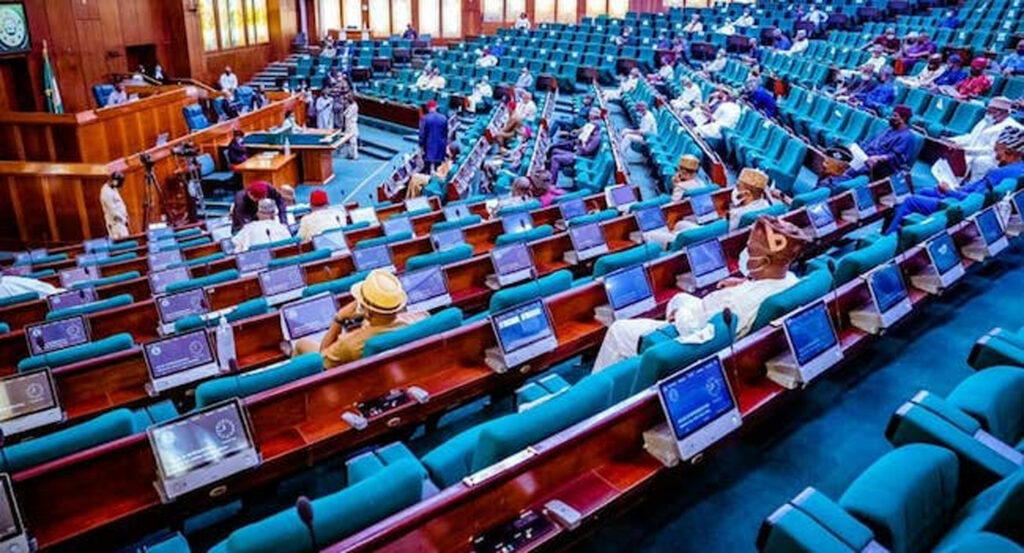By Henry Ojelu
ABUJA — The Nigerian Bar Association, NBA, has called on the National Assembly to urgently amend the Electoral Act 2022, proposing far-reaching reforms that would give full legal backing to the use of the Bimodal Voter Accreditation System (BVAS) and electronic transmission of results via the INEC Result Viewing Portal (IReV), among other critical recommendations aimed at ensuring free, fair, and credible elections in Nigeria.
At a formal presentation before the House of Representatives Committee on Electoral Matters in Abuja, the NBA’s Electoral Reform Committee, led by its Chairman, Dr. Monday Ubani, SAN, submitted a detailed memorandum demanding key legislative changes ahead of the 2027 general elections.
The session was presided over by the Chairman of the House Committee, Adebayo Balogun, who received the NBA team along with parliamentary clerks from both chambers.
The Chairman of the Senate Committee on Electoral Matters, who was unavailable at the time, is expected to meet the NBA at a later date.
In its submission, the NBA urged the National Assembly to amend Sections 47 and 60 of the Electoral Act to make the use of BVAS for voter accreditation not just procedural but a mandatory legal requirement.
It also wants BVAS data to be officially recognized as the sole and binding record of voter accreditation in any election. Furthermore, the Association called for explicit legal recognition of electronic transmission of results to IReV, warning that failure to do so continues to expose elections to post-poll manipulation and loss of public trust.
The NBA also recommended that any INEC official who fails to transmit results electronically should face criminal sanctions.
Beyond technological reforms, the NBA made a strong case for amending Section 29(5) to restrict the right to challenge a candidate’s qualification to only aspirants within the same political party.
It proposed that the current 14-day time limit for filing pre-election matters be retained under Section 29(8) to ensure timely resolution of disputes.
It also called for a revision of Section 33 to allow substitution of candidates only in cases of death or voluntary withdrawal, supported by a sworn affidavit and relevant documentation.
On internal party democracy, the NBA demanded stronger INEC oversight. It proposed the amendment of Section 84 to empower the electoral body to supervise political party primaries, compel early submission of delegate lists, and sanction parties that violate nomination procedures.
This, the Committee noted, would promote transparency, reduce intra-party litigation, and improve voter confidence in the electoral process.
In a bid to streamline the presentation of electoral petitions, the Committee proposed amendments to Section 137 to allow the use of certified documents such as BVAS logs, IReV screenshots, and EC8A forms as sufficient evidence of irregularities, thereby minimizing the dependence on oral testimony and expediting the judicial process.
The NBA also reiterated its longstanding call for the establishment of an independent Electoral Offences Commission.
According to the reform document, the new body should possess prosecutorial powers and be tasked with investigating and prosecuting electoral crimes, including vote-buying, ballot box snatching, violence, and collusion by election officials.
To improve logistics and neutrality on election day, the NBA proposed the introduction of early voting for INEC officials, security agents, journalists, and accredited election observers.
This, it argued, would ensure that these critical stakeholders perform their duties without distraction or bias.
Another notable recommendation is the proposal to give statutory backing to all guidelines and regulations issued by INEC under the Electoral Act. The NBA believes this will eliminate legal ambiguities and enforce consistency in electoral operations across the country.
In a cost-saving and integrity-boosting move, the NBA also recommended that all national elections be conducted on a single day.
It argued that simultaneous elections would prevent manipulation between staggered polls, reduce operational costs, and promote voter turnout.
Additional proposals included the enforcement of INEC’s published timetables to enhance accountability, clearer jurisdiction for election-related cases to discourage forum shopping, harmonized resignation deadlines for public office holders contesting elections, and a pilot scheme for diaspora voting during presidential elections to accommodate Nigerians living abroad.
Speaking during the presentation, Dr. Ubani reaffirmed the NBA’s commitment to electoral justice and democratic advancement.
“These reforms are urgent, strategic, and critical to restoring public faith in Nigeria’s democracy,” he said.
Alternate Chairman of the Committee, Mr. Sam Itodo, emphasized that the proposals align with international best practices and reflect widespread demands for credible elections.
Members of the House Committee welcomed the recommendations and assured the NBA of their readiness to incorporate many of the proposals into the ongoing legislative review.
Feedback from the lawmakers suggests that many of the NBA’s recommendations are already being incorporated in the ongoing legislative review of the Electoral Act.
The NBA Electoral Reform Committee is expected to continue its engagement with both chambers of the National Assembly to ensure the eventual passage of the amendments into law.
The post NBA to NASS: Amend Electoral Act to mandate BVAS, IReV use appeared first on Vanguard News.

